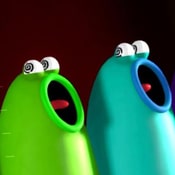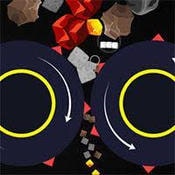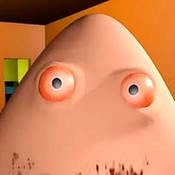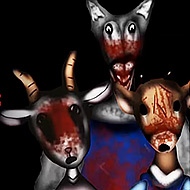The Wolf and the Seven Little Goats (Analog Horror)
 0
0
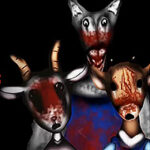
The Wolf and the Seven Little Goats (Analog Horror) transforms a familiar fairy tale into a grim, slow-burning horror game where tension builds not from jumpscares, but from eerie surveillance, strange rhythms, and off-screen implications. The goats are hiding, the wolf is hunting, and you’re caught somewhere in between.
A Home That Watches Itself
Set inside a single house, the game offers a layered space full of cameras, locked rooms, and cryptic notes. You play from a shifting perspective—sometimes one of the goats, sometimes the observer, and occasionally… someone or something else entirely. With each cycle, the house shifts ever so slightly.
- Cameras reveal movement patterns of the wolf, but some footage is corrupted.
- Goats leave behind voice recordings that seem edited or spliced out of order.
- Day and night cycles occur randomly, altering visibility and pacing.
Analog Horror Mechanics
This isn’t a fast-paced game. Instead, it builds dread through static-laden audio, color bleed, and filters that simulate damaged VHS tapes. The wolf’s presence is subtle—a flicker on the camera, a change in music, or a shadow behind furniture. You’re always looking, waiting, guessing.
Decryption and Repetition
The only way to progress is through repeated observation. There are hidden clues in the static, codewords in reversed audio, and strange symbols that appear only at specific times. The game encourages players to take notes, replay events, and notice what’s different each time they restart the cycle.
The Wolf and the Seven Little Goats (Analog Horror) provides a narrative puzzle built on suspicion and discomfort. It avoids traditional horror game tropes in favor of slow, psychological unraveling—creating an experience where seeing too much is often worse than seeing nothing at all.
Opinions
There are no reviews yet. Be the first one to write one.


